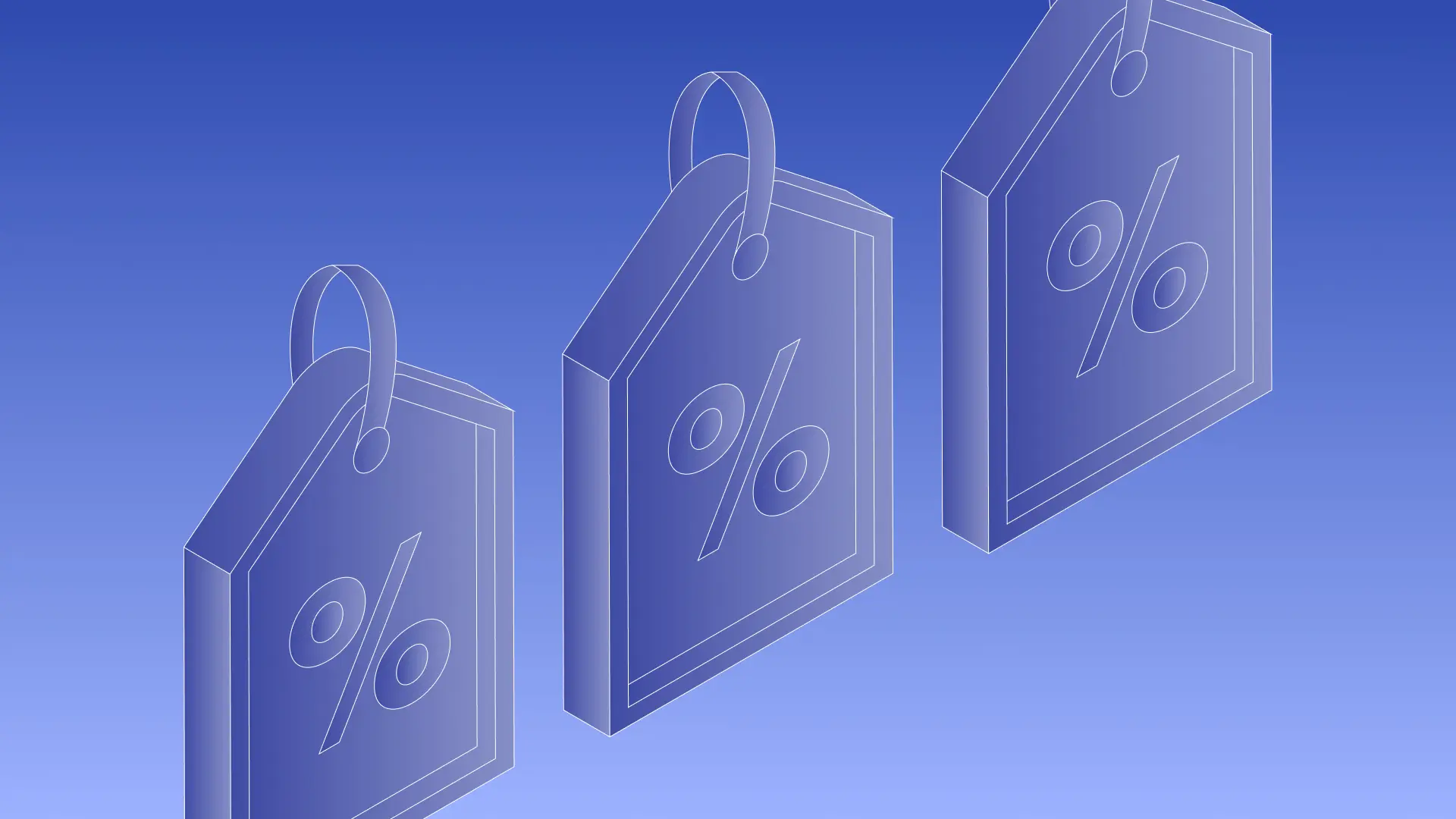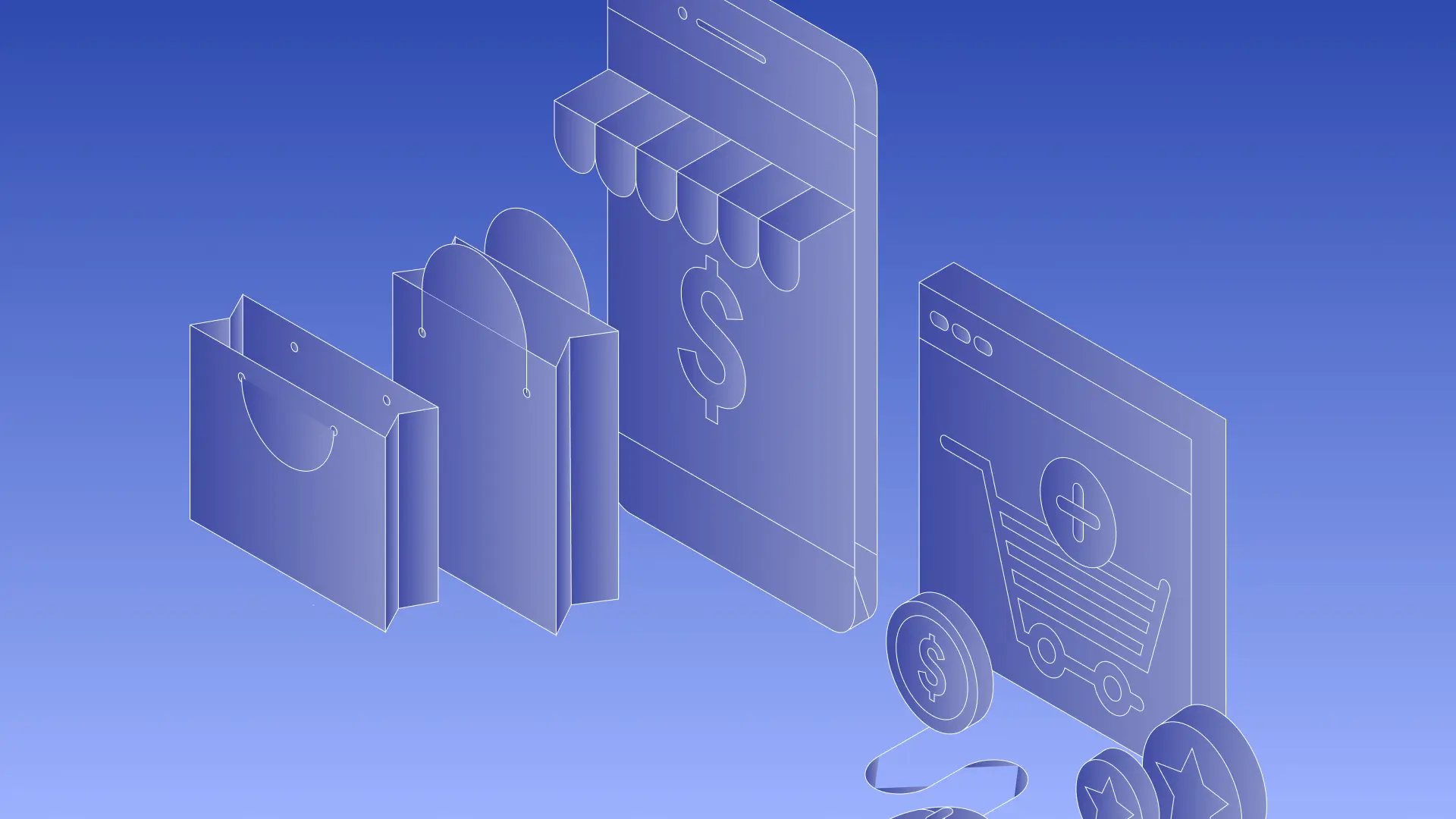Top Payment Gateways for Ecommerce in 2024
- Shopify
- Ecommerce
- Payment Gateways
Launched
October, 2024

Introduction
For an ecommerce business, nothing is more crucial than the final stage – payment.
That’s the decisive moment when all your efforts either pay off or fall flat. That’s why the payment options you offer matter a lot.
Here are some interesting numbers for you:
- 25% of shoppers abandon their carts due to trust issues with card information.
- 13% leave if there aren’t enough payment options available.
Those are significant numbers to ignore. If your payment processes aren’t credible, or you don’t offer enough options, your shoppers will leave you with abandoned carts.
But you don’t want that. You want money in the bank. That’s exactly what we'll help you with.
This article is all about payment gateways → How it works, why it’s important, 7 best options, and how to choose the right one for your business.
What Are Payment Gateways & Why Do You Need Them?
Simply put, a payment gateway bridges your business and the financial institutions involved in a transaction.
It enables customers to pay securely via their credit cards, digital wallets, bank accounts, etc. Here’s how they work:
|
Customers check out and enter their payment information (card number, wallet details, etc.) ⬇️ The gateway encrypts the customer data to protect it from fraudulent activities and sends it to the processor for authorization. ⬇️ The processor requests approval from the issuing authority and checks for funds availability. If the transaction is approved, the vendor and customer are notified. If it fails, the customer is notified with a relevant message. ⬇️ When it’s approved, the order is placed, and the vendor receives money in their bank. Depending on the bank, this usually takes 1-2 business days. |
These gateways charge a fee to securely transfer payments from customers to your accounts. The fee can be per transaction, fixed, or a combination.
You may wonder why you need a payment gateway after all? Here are 4 reasons why:
1. Secure payments:
A payment gateway protects customer information from fraud and cyber attacks. It also protects the merchant’s money with verifications and authorizations. It’s hard to run fake credit cards through legitimate payment gateways.
2. It Builds Trust
As mentioned – a quarter of customers could leave if they can’t trust a business with their payment information. With a payment gateway, your customers feel secure and confident about using their cards with your business.
Credible gateways comply with PCI DSS (Payment Card Industry Data Security Standards), which means more protection for customer data.
3. Multiple Payment Options
Payment gateways often support various payment methods (e.g., credit cards, digital wallets, Buy Now, and Pay Later options), giving customers flexibility and convenience. This is needed if you don’t want to lose customers to competition.
Imagine being a growing startup and losing a $3000 sale just because you only accepted a Master Card and not a Visa.
4. International Transactions
This is important for businesses that want to scale. Getting payments from different parts of the world is usually a challenge because of the varying laws of different countries.
Using a gateway can help you accept payments in different currencies without worrying about failed payments, conversion rates, or fraud.
Now that you understand the importance of payment gateways, let’s explore the best options you can use for your ecommerce store.
7 Best Payment Gateways for Ecommerce Businesses
Let’s look at a brief comparison of the payment gateways before exploring them in more detail.
|
Payment Gateway |
Rating (Out of 5) |
Pricing |
Best Fit For |
|
Shopify Payments |
4.4 |
Free for Shopify Users Processing Fee Starts at 0.6% |
Shopify users who don’t want the hassles of managing a gateway |
|
Stripe |
4.2 |
Fixed price + Percentage Varies depending on the region |
Vendors looking for a reliable and reasonably priced solution |
|
Skrill |
3.4 |
3.99% conversion fee for payments from outside the USA |
Businesses that want fast payouts and conveniently receive payments in cryptocurrencies |
|
Authorize.net |
4.2 |
$25/month & processing fee of 2.9% + 30¢ per transaction |
Businesses that want to offer a reliable experience while offering multiple payment options |
|
PayPal |
4.4 |
3.49% + fixed fee per transaction The transaction fee varies with the payment method. |
Vendors who are looking to get started easily without any hassle. Ideal for startups and SMBs in the growth phase. |
|
Adyen |
3.3 |
€0.11 + fee determined by the payment method |
Good for enterprise-level businesses |
|
WorldPay |
3.2 |
Pricing varies for every business |
Businesses that want to receive high volumes of payments from around the globe. Not the best option for SMBs. |
Now, it’s time to go deeper.
But, before we roll out the options for you, know this: there’s no perfect gateway for any business. Different options offer different benefits, and some features may be missing.
In the end, it’s all about what best suits your business needs. Once you explore the options, we’ve also shared the parameters to gauge a gateway for your business. So, stick around until the end.
Let’s start with the analysis now.
Shopify Payments
Rating : 4.4/5
Shopify Payments is one of the best ecommerce payment gateways available to any merchant.
For Shopify store owners it’s set up by default so you’ll not have to make any extra efforts. It offers you a clean dashboard to track your payments and finances as well.
Here’s what the Shopify dashboard looks like.
Pros
- No third-party payment gateway is required for your store.
- 24/7 customer support is available in case there’s a payment issue.
- Accepts payments via multiple methods like credit cards, digital wallets, PayPal, etc.
- It’s PCI DSS compliant, so your customers can proceed with payments with peace of mind.
- International support is available, and it helps you receive payments from different geographical locations in different currencies.
Cons
- Only available for Shopify users.
- Available in selected countries like the U.S., Canada, the U.K., Australia, and some European nations.
Pricing
Shopify charges its users zero subscription fees. It only charges a payment processing fee, which starts at 0.6% per transaction and can vary depending on your Shopify plan and region.
Shopify also charges a 1.5% conversion fee for businesses in the US and 2% for other regions.
Note : Shopify users can integrate other payment gateways of their choice as well. Shopify doesn’t bind its users to only using Shopify payments. However, in the regions where it is supported, Shopify Payments is usually the most convenient and affordable option for businesses.
Stripe
Rating : 4.2/5
Stripe is a widely known payment gateway that helps you establish customer trust.
It’s a good option that goes well with a wide variety of ecommerce platforms including Shopify. It’s a secure payment gateway and vendors around the globe trust its security measures. Let’s explore more about Stripe.
Pros
- Available in around 50 countries and accepts over 130 currencies.
- PCI DSS compliant and allows to save card details for customers to make recurring payments.
- Offers real-time financial reporting for vendors to monitor their finances and track different transactions.
- Compatible with different ecommerce platforms other than Shopify, like Woocommerce, Adobe Commerce, etc.
Cons
- Stripe integration can be technical for store owners, and they may need assistance.
- It can be complex for small to medium businesses that want more simpler, on-the-go solutions.
Pricing
Stripe prices can vary depending on the region. It charges 1.5% + €0.25 for standard European Economic Area cards & 2.5% + €0.25 for UK cards.
Skrill
Rating : 3.4/5
Skrill is another renowned player in the payment gateway game.
Skrill is known for its wider acceptance worldwide compared to other competitors. It works in 140+ countries, even in regions where common payment methods are unavailable.
It’s one of the few payment gateways that offer transactions in cryptocurrencies besides traditional currencies.
Pros
- Skrill is popular for fast payouts.
- It’s PCI-DSS compliant gateway.
- Offers a loyalty program called Knect which offers cash rewards.
- Accepts payments via multiple methods like cards, bank transfers, etc.
- Allows you to accept and hold cryptocurrencies in the Skrill wallets.
Cons
- Integrating Skrill with a platform can be more complex than other options.
- There’s a dormancy fee for inactive accounts, which others don’t have.
- Skrill’s currency conversion fees are considered high compared to other gateways.
Pricing
Skrill charges a conversion fee of 3.99% for payments from outside the USA, which is high compared to other options.
Authorize.net
Rating : 4.2/5
Authorize.net is known for its reliability amongst ecommerce merchants.
It’s popular amongst merchants who do physical sales as well as e-commerce. It’s a lot more than a simple payment gateway and is more suitable for established businesses. For startups, it can be an overkill.
Pros
- Supports multi-currency payments.
- Supports automatic billing and recurring payments.
- Offers added protection for merchants via different fraud protection tools.
- Accepts all major credit and debit cards, including Visa, MasterCard, American Express, and Discover.
- Enables businesses to accept electronic checks (ACH payments), expanding customer payment options.
Cons
- Authorize.net operates in limited geographic regions.
- Merchants without technical expertise will face challenges in setting up Authorize.net.
- Monthly fees of $25, which is considered high for several small to medium businesses.
Pricing
Fixed monthly price of $25 and a processing fee of 2.9% + 30¢ per transaction.
PayPal
Rating : 4.4/5
PayPal is a famous payment gateway that has a wide acceptance around the globe. It’s available in 200+ countries and you can accept payments in 20+ currencies.
Customers are generally happy to pay via PayPal. Even when you use other payment gateways, they offer to accept money via PayPal because it’s so widely accepted.
Pros
- Easily trusted by millions around the world.
- It offers fraud protections for shoppers and customers.
- Zero set-up fees which makes it easy for small businesses to get started.
- Very easy to pay via PayPal compared to other payment gateways.
Cons
- PayPal offers ease of use but is a generally expensive option for businesses.
- People usually complain about the customer support quality.
- Businesses with more sales volume avoid PayPal because of high fees.
- PayPal checkout page is separate than the store’s website.
Pricing
PayPal charges 3.49% + fixed fee per transaction. The fixed fee varies depending on the currency.
Adyen
Rating : 3.3/5
Ayden is something you choose when you want your gateway to do a lot more than just process payments. It’s more of an omnichannel payment solution that does the job for online as well as physical POS.
It’s a highly secure platform packed with great features. Giant corporations like Netflix & Spotify use it for their payments. However, for small & medium businesses, it can get really complicated.
Pros
- Supports a wide range of international currencies and payment methods.
- Highly scalable and can easily handle 1000s of payments per day without any fuss.
- Offers advanced fraud protection mechanisms to make transactions safe for all involved parties.
- Offers one of the quickest cash settlement times for businesses.
Cons
- Geared towards enterprises.
- Limited customer support for small merchants.
- Offers lots of payment options, but pricing varies with each of them.
Pricing
€0.11 + fee determined by the payment method.
WorldPay
Rating : 3.2/5
WorldPay is a payment gateway well-suited for businesses that operate internationally.
It offers vendors many options. In addition to payments, they can track transactions, fetch financial reports, and even integrate offline payment channels.
Its integration usually requires expert help, but once done, vendors can generally operate independently.
Pros
- Operates in more than 140 countries and handles 120+ currencies.
- Offers advanced security features like tokenization to make transactions secure.
- Offers a wide range of payment methods to make payments convenient for shoppers.
- There’s room for fee negotiation – if you are a large vendor, you can get discounted prices.
Cons
- Complicated pricing structure – too many variables are involved depending on the location and customers' payment methods.
- Small businesses can find the service highly-priced compared to other options.
- WorldPay generally prioritizes larger clients for support over smaller vendors.
Pricing :
Non-transparent pricing. It generally depends on what payment method shoppers choose.
How To Choose The Right Payment Gateway For Your Business?
We’ve covered some of the best payment gateway options for your business.
Sure, there’d be a lot more based on your geographic location or your industry. But, in the end, it all comes down to choosing something that’s right for YOUR business.
For example – you could get impulsive and choose a high-costing gateway because it looks flashy. But, your business may not need it, and you could end up spending 1000s of dollars in fees for nothing.
So, let’s see some parameters to analyze before finalizing your payment gateway:
Payment Processing Fees
Evaluate your budget. The percentage differences look small when starting out, but over time you’d end up paying substantial amounts in fees.
Also, see the charges for the most common payment methods of your clients and then make a decision.
For instance, if most of your customers are international, it would be wise to choose something with lower conversion fees.
Payment Methods
As mentioned earlier – 13% of shoppers abandon their carts if there are not enough options for payments. So, be mindful of the methods.
Choosing the cheapest one isn’t always right. It’s worth paying the extra amount if a gateway offers a method that your customers commonly use.
Also, choose a gateway that offers localised payment options. For instance, accepting payments via Venmo in the US.
Security
This one is mandatory – only choose gateways that offer standard security features and are PCI DSS compliant. Don’t choose something that doesn’t comply with security standards even if it’s free.
You’ll save some money but end up hurting your business. And eventually, lose.
Integration Flexibilities
Not all businesses operate equally – some are just online in a certain locality, some operate online and in-store, and some have omnichannel operations.
So, choose the one that integrates with your business model the best. For instance, WorldPay is excellent for global online payments but short in POS integrations. Similarly, some gateways let you manage easily via applications, while others are harder to operate.
So, find an integration balance before making the choice.
Pro tip: Several gateways offer free trials before asking you to pay – use that to find out what fulfils your business needs the best.
Payout Period
Payment gateways hold payments for a while before transferring them to the vendors.
Ensure that you research the payout times well. Usually, it’s done within 1-2 business days, but some gateways can take a week or more to clear the balance. This is crucial to consider if your business needs fast financial rolling.
Customer-Centric
Eventually, it’s all about customers.
Choose something reliable that won’t ruin the shoppers' experience. These days, people have tons of choices, and negative experiences can make them go away.
In fact, 86% of people will likely not do business with a brand after just a single bad experience. So, choose a customer-friendly, reliable gateway that doesn’t scare away customers with complicated checkouts.
And it’s worth paying a little premium price for that if required.
Conclusive Thoughts – Don’t Take Payments Lightly
An incompatible payment gateway can hurt your business.
In the ecommerce realm where acquisition costs are getting so high, you’d not want to lose shoppers in the last stage, right?
So, analyse the payment gateways and choose one that’ll give the best experience to your customers.
Ultimately, the right choice will result in more revenues & retained customers for your ecommerce business with fewer abandoned carts.
FAQs
1. Can you use multiple payment gateways?
Of course, you can use different payment gateways to suit your business needs. However, for many startups and growing businesses, one is usually enough. Multiple gateways are more suited for businesses with wider operations.
2. What is the difference between third-party payment gateways & native payment gateways?
Several ecommerce platforms offer their native payment gateways to assist customers with their payments. For example, Shopify Payments is native to Shopify. However, for WooCommerce, you’ll have to integrate a payment gateway like Stripe or Skrill, making it a third-party gateway.
3. What are some common payment methods?
- Mobile wallets
- Credit & debit cards
- Bank transfers
- eChecks
- Cryptocurrencies
4. What are some common payment gateways for ecommerce businesses?
Here are some common payment gateways for your ecommerce business:
- Shopify Payments
- Authorize.net
- Skrill
- Stripe
- Ayden
- Paypal
- WorldPay
5. What is the difference between payment gateways and payment processors?
Payment gateways bridge the merchants and the processors while payment processors actually move the funds and look after authorizations.
Stats and rating references:
https://www.semrush.com/blog/customer-retention-stats/
Let's build something together
If you like what you saw, let's jump on a quick call and discuss your project

Related posts
Check out some similar posts.

- Shopify
Navigate Shopify's pricing with ease. Discover what each plan offers and choose the best option to g...
Read more
- Shopify
Increase Shopify revenue by raising Average Order Value: five practical tactics that encourage highe...
Read more
- Ecommerce
Boost your e-commerce success with exceptional customer experiences. Discover strategies to build lo...
Read more
- Shopify
Prepare your Shopify store for the holidays with proven tactics to attract shoppers, improve UX, and...
Read more